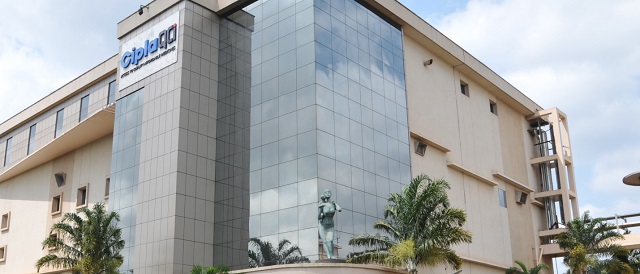
A jump in cost of sales, administrative expenses largely to blame for the bad performance
Kampala, Uganda | JULIUS BUSINGE | Shareholders of Cipla Quality Chemical Industries Limited will again wait to receive dividends after their company reporting Shs16bn net loss for the first six months ended Sept.30 compared to a loss of Shs14.4bn in the same period a year before.
The loss, according to the financial results published on Nov.16 was largely caused by increased cost of sales and growth in general and administrative expenses.
Cost of sales jumped from Shs61bn in the first six months to September 2019 to Shs112bn in the first six months to Sept.2020. General and administrative expenses grew by 16.9% from Shs17.6bn to Shs20.6bn in the same period under review mainly due to additional costs to manage staff safety risks associated with the COVID-19.
The impact of the additional costs was partly offset by savings on international travel expenditure. Following the revision of plans for factory expansion, consultancy costs of Shs1.6bn previously deferred, were expensed in the current period, company executives said.
On a positive note, revenue grew by 59.7% from Shs76.7bn in the previous period to Shs122.6bn while normal manufacturing sales grew by 34.9% from Shs76.7bn in the previous period to Shs103.5bn due to new customers in the export segment while lower margin contract manufacturing and raw material sales rose to Shs19.1bn.
Company executives including Emmanuel Katongole, the executive chairman and Nevin Bradford, the chief executive officer said, there was no contract manufacturing and raw material sales in the previous period.
Gross margins on the other hand reduced to 8.5% in the current period from 20.1% in the previous period mainly due to increased production costs resulting from higher cost of raw materials.
The increase in the cost of raw materials was mainly due to international supply shortages during the COVID-19 lockdowns of suppliers’ countries. Gross margins were further affected by differences in the sales product mix in the two periods, executives said.
Impairment allowance on financial assets mainly comprised an allowance made for receivables from Government of Zambia (GoZ). The company has a receivable from GoZ of Shs42.9bn which was fully impaired after recording an additional impairment allowance of Shs9.1bn in the current period.
“GoZ continues to acknowledge this obligation to the company and has reiterated its intent to clear the outstanding receivables as soon as possible,” the financial results reads in part, adding, “negotiations have, however, taken longer than expected leading to a directors’ decision to impair the debt fully.”
Cash flow from operating activities in the current period was a deficit of Shs4.3 bn reducing from a surplus of Shs0.7bn in the previous period.
This resulted from an increase in stockholding and the operating loss incurred in the period. Executives said, the impact was partly reduced by improved collections from customers and additional credit received from suppliers.
 The Independent Uganda: You get the Truth we Pay the Price
The Independent Uganda: You get the Truth we Pay the Price


